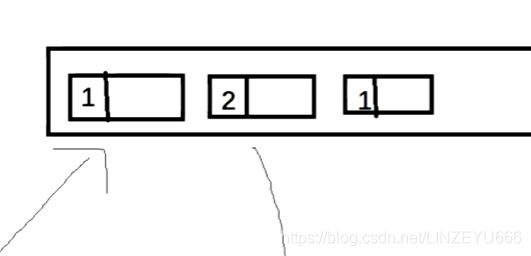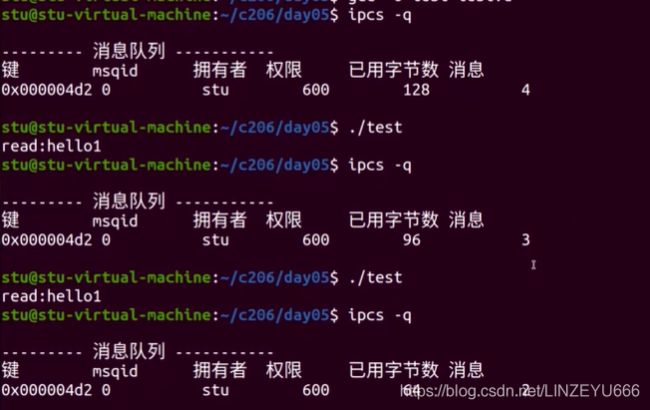151-消息队列
分为添加消息,读取消息两个动作
消息是一个结构体。第一个成员是类型。

发送消息,需要设置消息类型。读取的时候要指定消息类型

如:1号消息,2号消息
消息的方法
#include 进程 a 发送一条消息,进程 b 读取消息
vi a.c
#include vi b.c
#include 
运行结果如下:

如果读取2号类型消息

阻塞住了,因为没有2号类型消息
可以添加2号类型消息来解决阻塞情况
消息类型要>=1,因为0有特殊的意义
如果置为0
那么系统就不会区分消息类型了,有消息就可以读了


